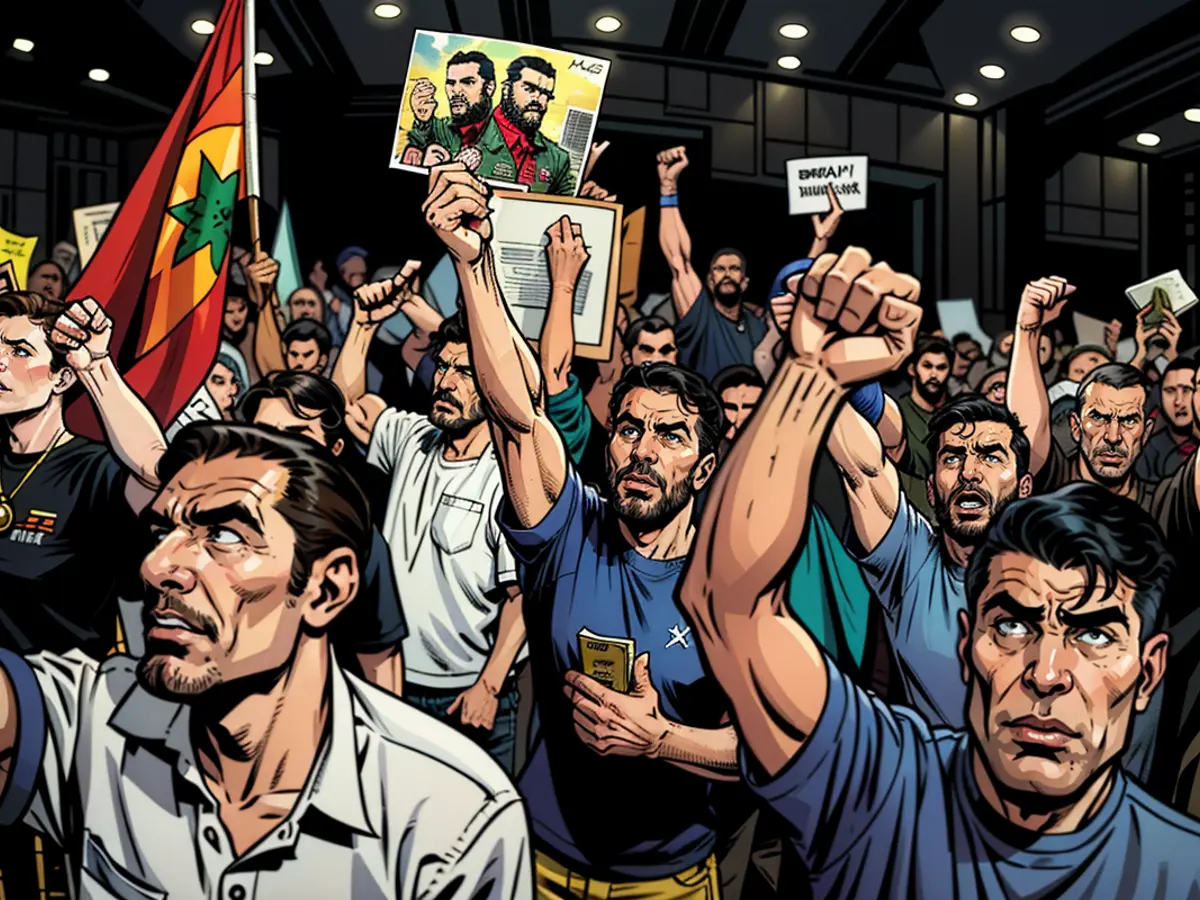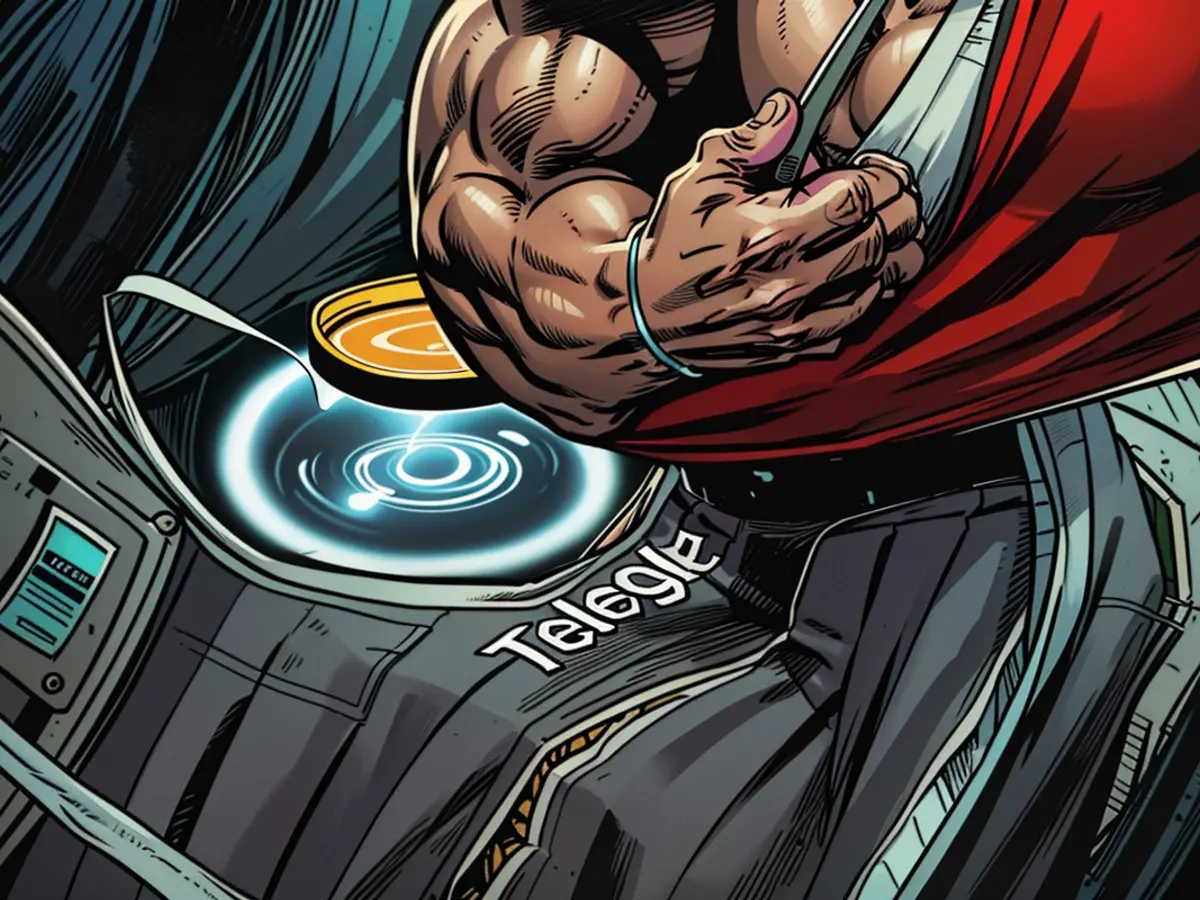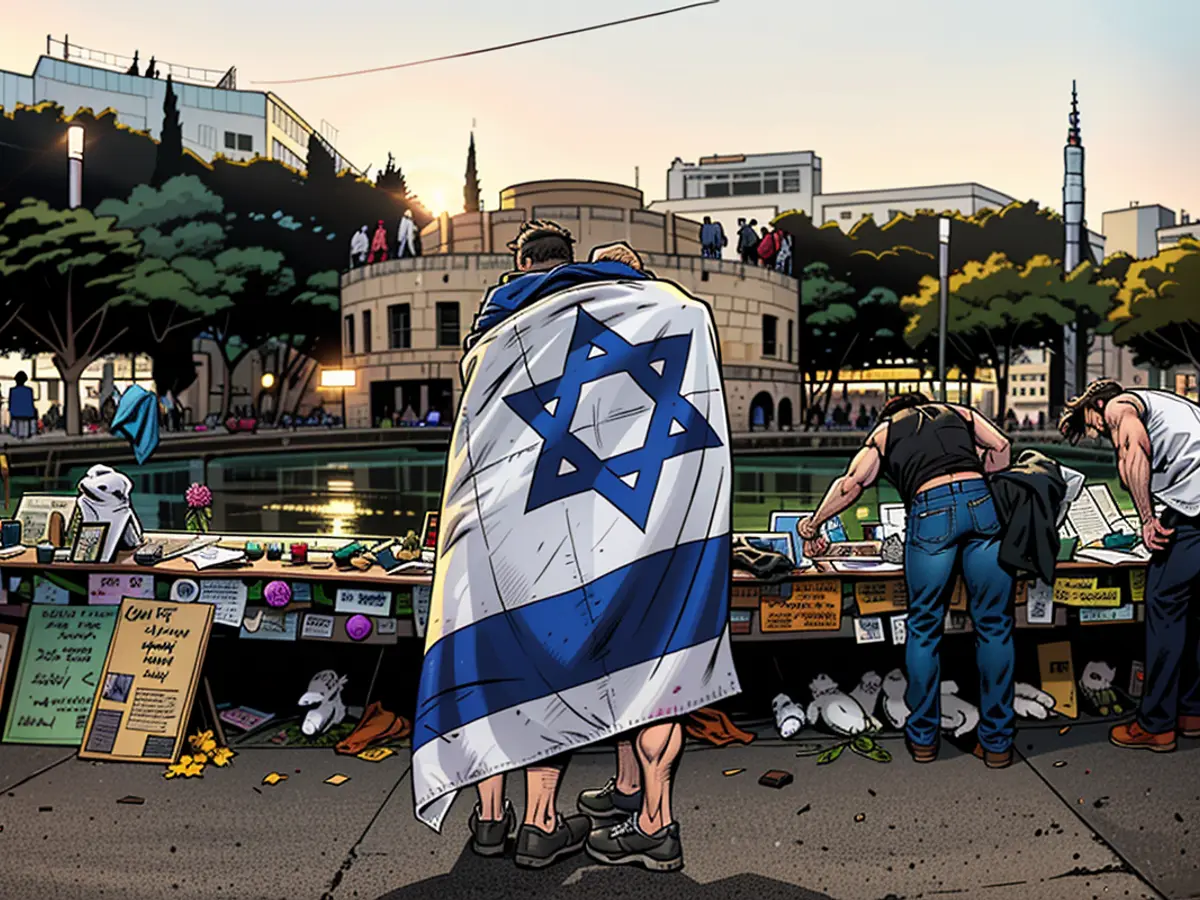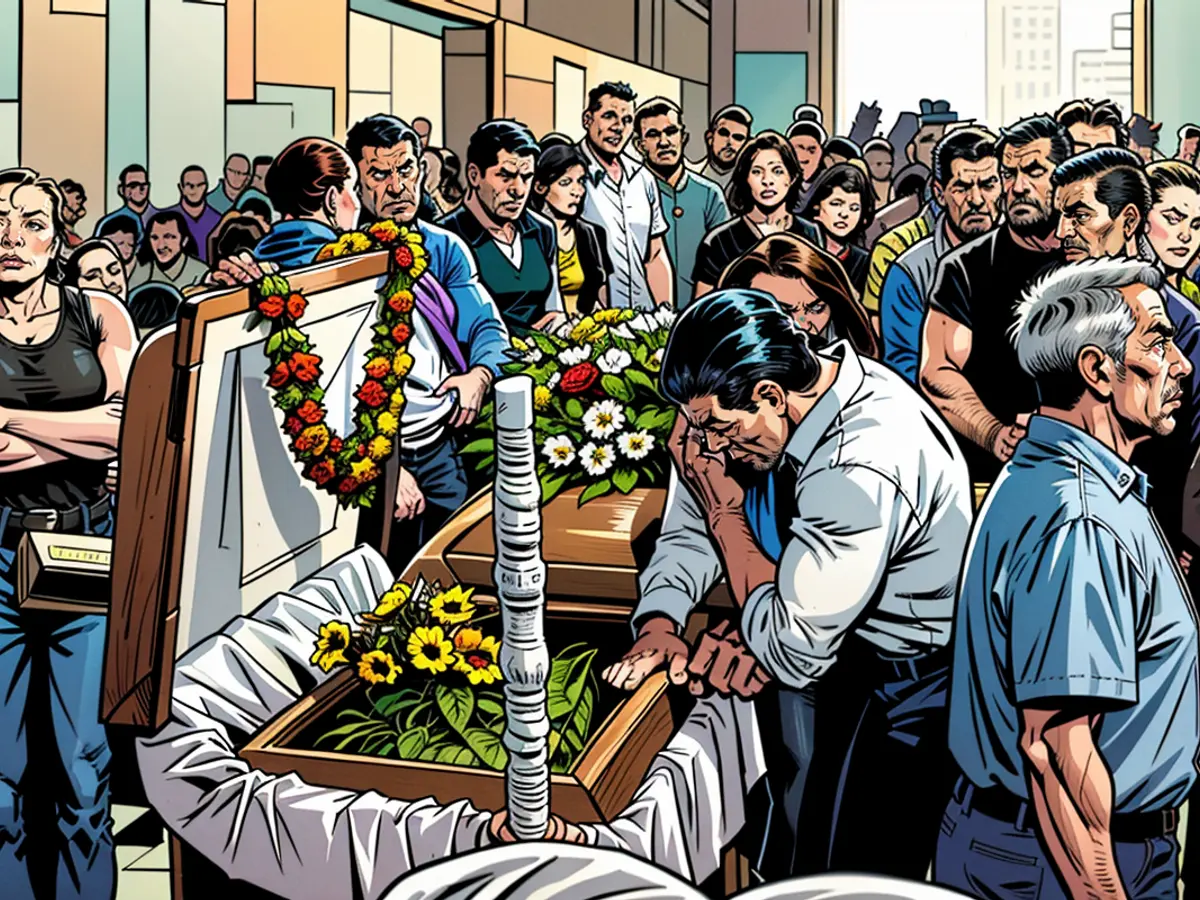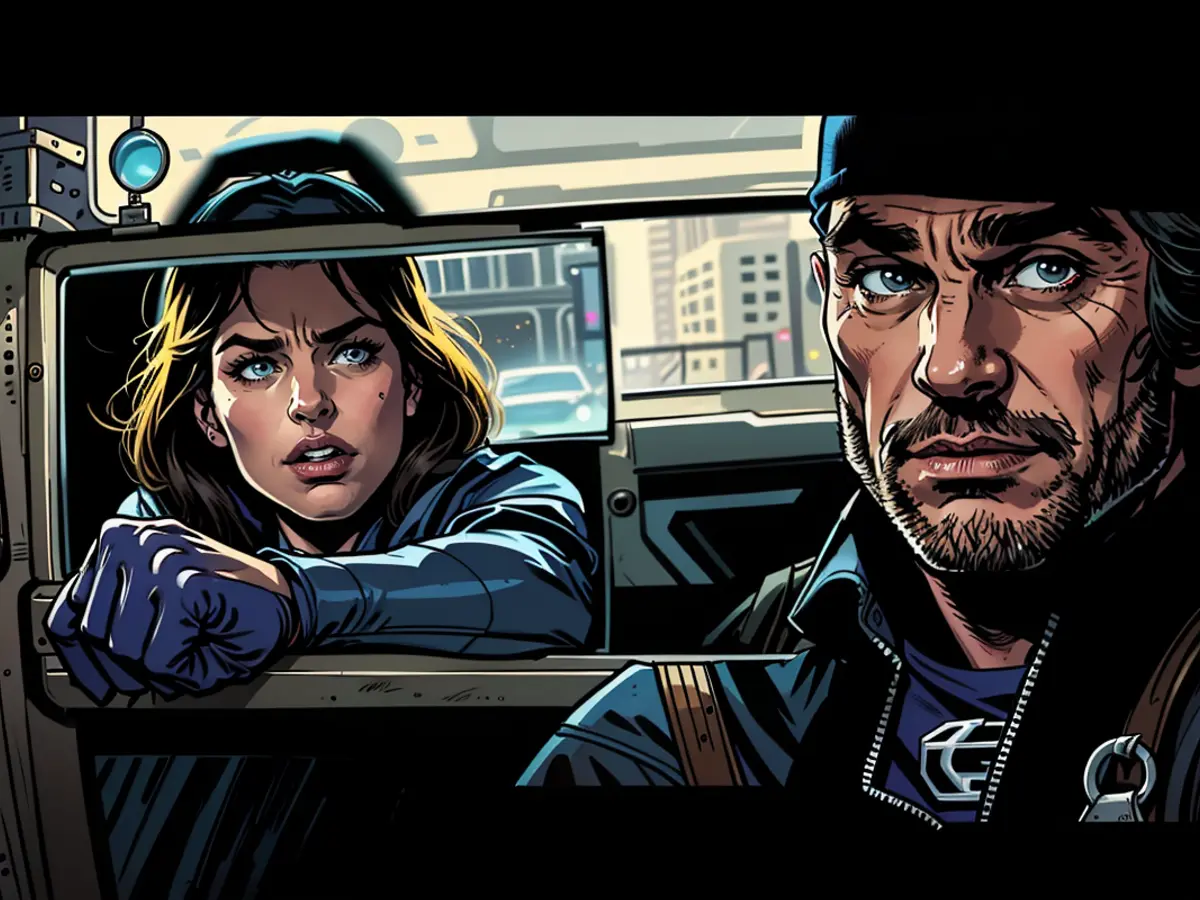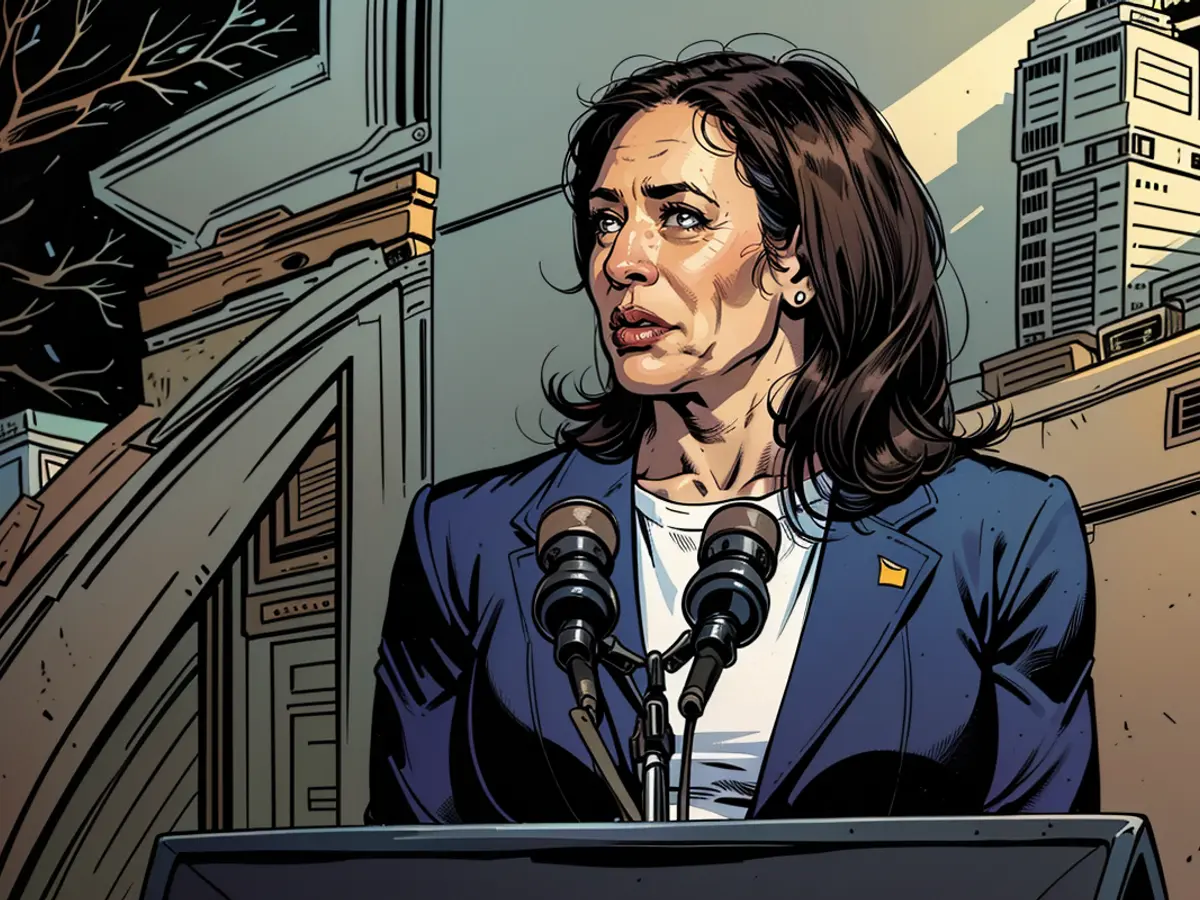I segnali contrastanti dell'Iran lasciano alcuni alleati nell'oscurità e mettono la regione in crisi.
La città si svegliò la mattina seguente scoprendo che un altro ufficiale sostenuto dall'Iran, il leader politico di Hamas Ismail Haniyeh, era stato ucciso in un assassinio nel cuore della capitale iraniana, Tehran.
Le possibilità di guerra, per mesi nascoste nelle profondità della psiche di questa città, erano aumentate a dismisura.
“Pensi che sia seduto nella stanza di guerra di Hezbollah?” ha detto un esasperato leader politico con legami con il potente gruppo armato con sede a Beirut. “Non ho idea di cosa accadrà dopo. Probabilmente sai più di me.”
Altri funzionari in contatto con l'Iran e Hezbollah hanno detto di essere altrettanto ignari di come Tehran e i suoi gruppi combattenti non statali potrebbero attuare la “vendetta severa” promessa dai suoi alti ufficiali militari e dal Leader Supremo Ali Khamenei.
Israele ha dichiarato che l'attacco a Beirut è stato un risposta a un attacco con razzi che ha ucciso 12 bambini nel villaggio di Majdal Shams, nelle Alture del Golan occupate da Israele, che ha incolpato Hezbollah. Hezbollah ha energicamente negato l'accusa.
Nel suo discorso televisivo successivo, il capo di Hezbollah Hassan Nasrallah ha detto che una risposta all'attacco nel sud di Beirut era “inevitabile”, liquidando i tentativi occidentali di prevenire un attacco di rappresaglia come futili. Ma è stato scarno nei dettagli.
“Con l'aiuto di Dio, la nostra risposta sta arrivando”, ha dichiarato solennemente in un discorso.
“Potremmo agire da soli o potremmo agire con l'asse”, ha detto, facendo riferimento alla rete di gruppi armati sostenuti dall'Iran che si estende dall'Iraq alla Siria, al Yemen e al Libano.
L'alleanza di gruppi combattenti è stata definita da alcuni commentatori israeliani come un “anello di fuoco” intorno a Israele - non alla pari con la potenza militare di Israele ma con una profondità strategica che fa tremare il paese mentre attende gli attacchi previsti di Hezbollah e dell'Iran.
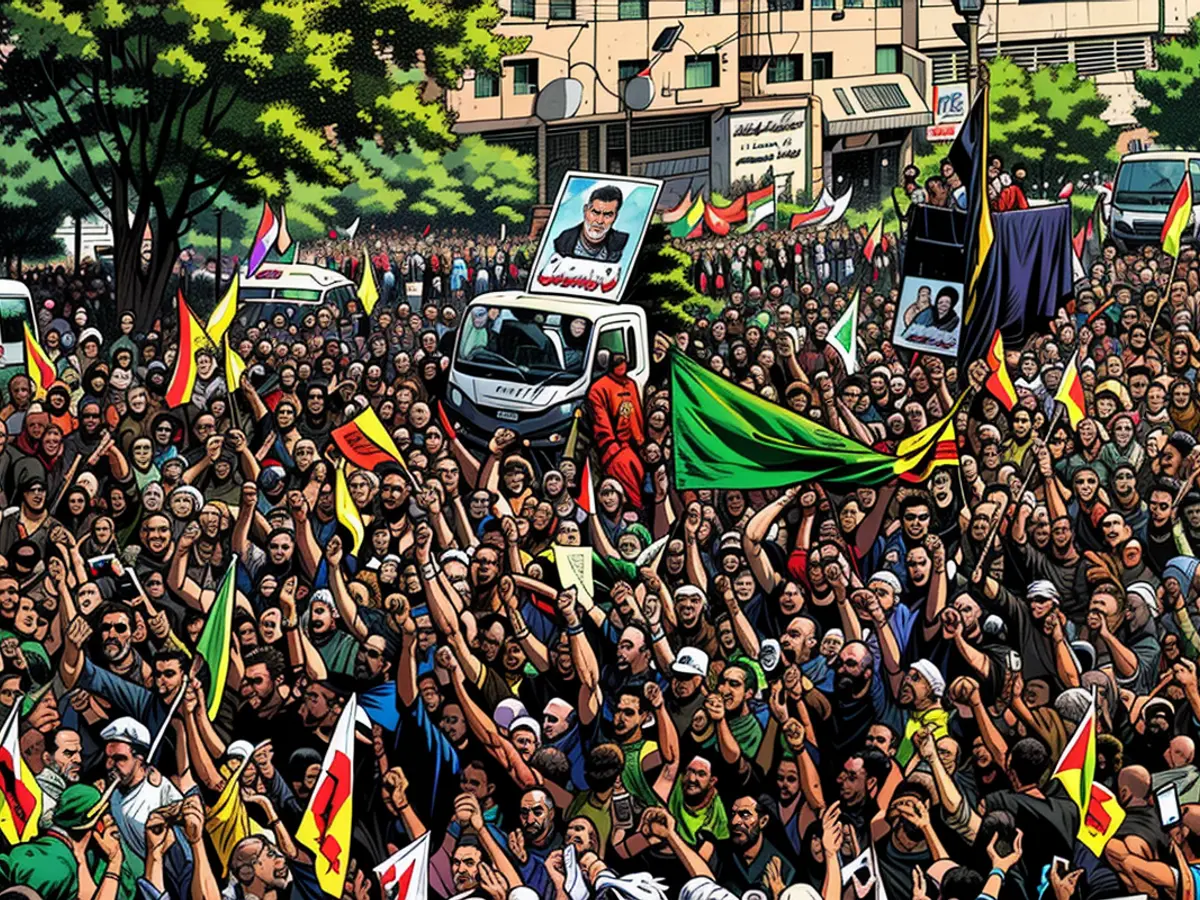
Il messaggio dall'Iran e dal suo potente partner non statale sembra criptico per designio. Nasrallah e i suoi sostenitori hanno esaltato i benefici della “guerra psicologica” in cui gli israeliani si preparano a un attacco, senza alcuna idea di quando potrebbe avvenire e sotto quale forma.
Ma ci sono anche indicazioni che Tehran sta temporeggiando, frenata dalla prospettiva di scatenare una guerra più ampia. Un diplomatico ha detto di credere che Hezbollah e l'Iran si siano “imprigionati” nelle loro stesse promesse di rappresaglie. Alcuni hanno suggerito che un possibile accordo di cessate il fuoco a Gaza potrebbe servire come uscita, mentre la comunità internazionale si prepara per i colloqui a Doha il giovedì. L'Iran ha respinto l'idea.
Una regione in allerta massima
Le conseguenze di qualsiasi rappresaglia sono difficili da prevedere.both Iran and Hezbollah are looking to thread an extremely narrow needle, where they produce enough impact to deter future attacks on the Lebanese and Iranian capitals but stop short of igniting an all-out war.
This may prove impossible. There is a widespreadview that Israeli Prime Minister Benjamin Netanyahu must keep a war going in order to keep his growing domestic problems at bay. Iran, its non-state actors, and even the international community, appear powerless to stop it.
“There is no deterrence to be re-established,” said Mohammad Shabani, Iran analyst and editor of Amwaj.media, an online outlet covering the region. “This is going to go on, and over time this is going to be very dangerous.”
It is possible that Iran and Hezbollah may have come to terms with this, recognizing that the open-endedness of their messaging around the anticipated response may be the strongest weapon at their disposal.
On most nights over the last two weeks, Israeli and US officials sounded alarms about an imminent response. This has not yet come to pass. It draws a striking contrast with the last time the region was on the brink of an all-out war, when Iran responded in April to an Israeli attack on its consulate in Damascus with a massive swarm of airborne weapons that were largely shot down by Israel and its allies.
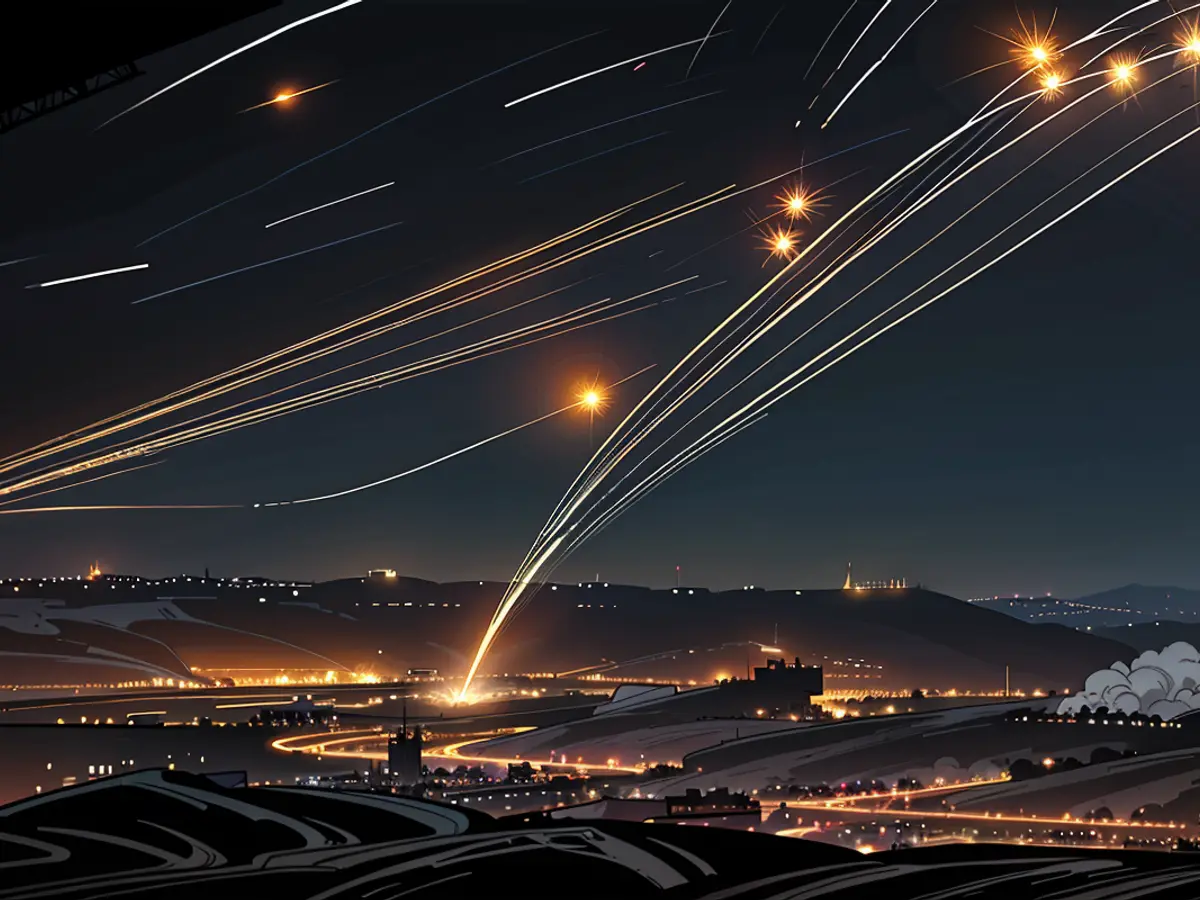
In the days that led up to that attack, diplomats and officials close to Hezbollah to whom CNN spoke in Lebanon had a rough idea about what Iran’s retaliation would look like: a show of force calibrated to cause very limited damage. Their estimates about the timeframe were largely accurate.
Iran at the time was telegraphing its next move through US allies in the region. Today, there is no evidence of that happening.
“There’s definitely an element of psychological warfare to this delay,” said Shabani. “But while you’re keeping the Israelis guessing, you’re also keeping the Lebanese and the Iranians on alert.”
Uncharacteristically, Nasrallah conceded in his last speech that the killing of Shukr and Haniyeh must be considered “successes scored by Israel.” That sense of failure is palpable in Lebanon and in Tehran, where political tensions are on the rise and the economy has taken a hit.
In Tehran, the Haniyeh assassination happened a day after the inauguration of Iran’s first reformist president in decades, Masoud Pezeshkian. Western analysts said Pezeshkian’s election could remedy rifts with the West. But the attack that killed Haniyeh has put a damper on those hopes.
In Beirut, the summer season is normally a boon for the struggling economy. Fireworks that lit up the night sky in the days leading up to Israel’s attack in southern Beirut have given way to sonic booms produced by Israeli jets breaking the sound barrier overhead, shaking windows and keeping frightened Lebanese families at home.
“I cannot think about what happens next,” said the political leader with ties to Hezbollah who CNN spoke to. “All I can do is make the appropriate preparations to help my community in case the worst happens.”
CNN's Ben Wedeman, Sarah El Sirgany, Crendon Greenway e Charbel Mallo hanno contribuito ai reportage.
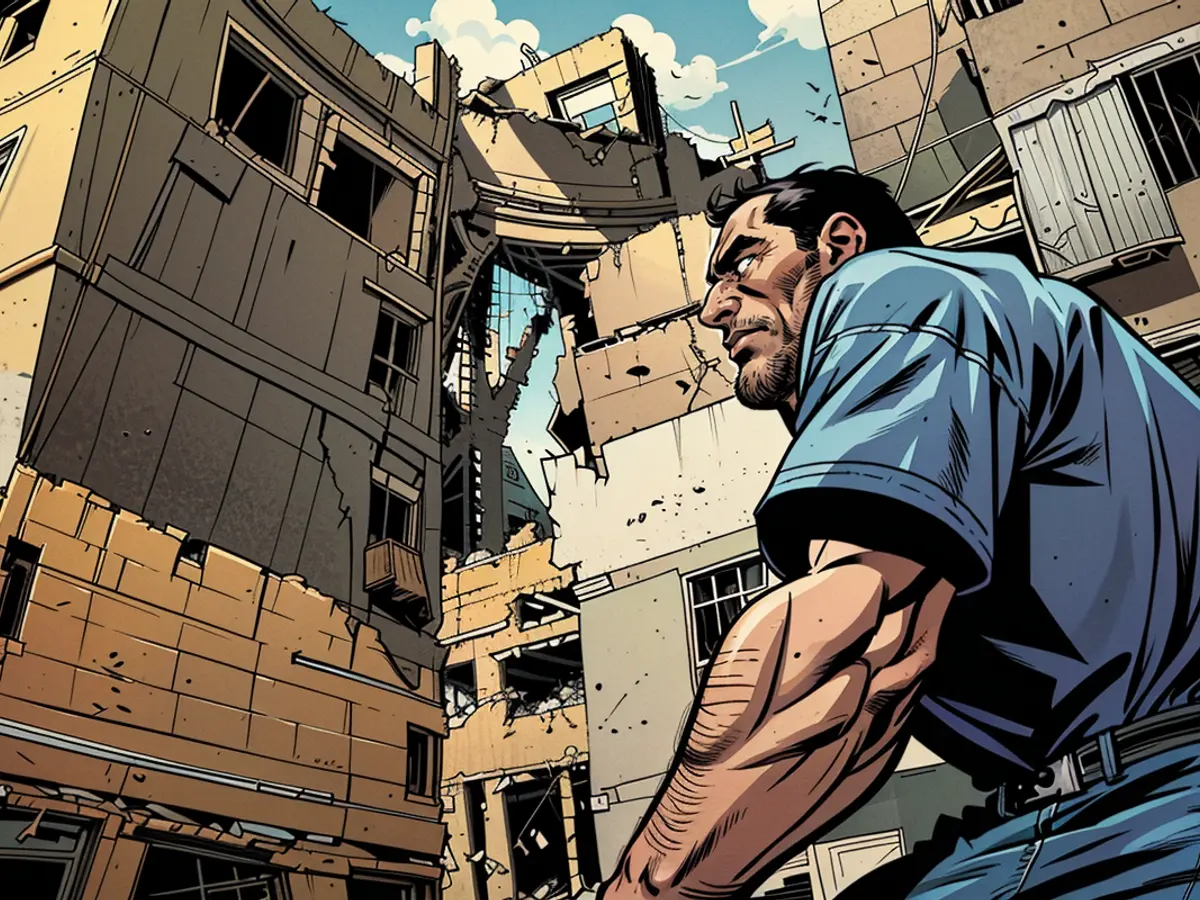
Il Medio Oriente e il mondo seguono da vicino la tensione tra Israele e i suoi avversari nella regione, soprattutto dopo l'assassinio del leader politico di Hamas, Ismail Haniyeh, a Tehran. Gli eventi nel Medio Oriente hanno il potenziale per influenzare significativamente la politica globale, poiché l'Iran e i suoi alleati, compreso Hezbollah, hanno minacciato una vendetta severa.
